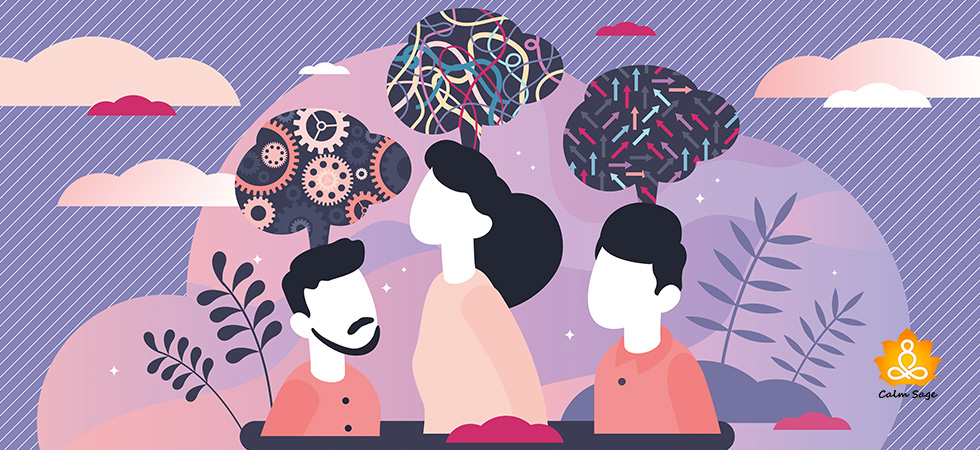7 Best Ways To Deal With Emotional Stress

Emotions are something that should not be feared but embraced and enjoyed. Even negative emotions such as worry, fear, and anger are something that we should embrace because they give us purpose.
Emotions, even fear, and sadness, are normal as are healthy emotions such as joy and love. But when our unhealthy emotions begin to interfere with our ability to do what we need to do, then it can turn into emotional stress.
In this blog, I’ll explain what emotional stress is, the warning signs, causes, and how to deal with emotional stress.
What Is Emotional Stress?

Stress is a pretty common reaction to tensions we experience in our daily lives. Emotions such as anger, frustration, sadness, grief, joy, and happiness among other emotions are normal responses to certain situations.
However, the tension, the stress that often accompanies these emotions interferes with your ability to do what is required of you in those situations, then it can be unhealthy.
Emotional stress is often painful to deal with and can take a heavy toll on our life and health. Many a time, when we are under stress, we resort to our coping mechanisms. Under emotional stress, there are times where we might resort to unhealthy coping mechanisms.
Coping with stress and emotions can be difficult so here, in this blog, I’ll help you learn some healthy techniques that can help you in coping with emotional stress. Before I come to those techniques, let’s learn what can be the warning signs and causes of emotional stress.
Warning Signs & Symptoms Of Emotional Stress
Warning signs of emotional stress can be physical, mental, emotional, and behavioral. Some common emotional stress symptoms can include;
A) Physical Signs
- Tightness in chest
- Increased heart rate
- Body aches and pains
- Clenching your jaws or grinding your teeth
- Breathlessness
- Feeling dizzy
- Feeling depressed or anxious
- Changes in weight
- Changes in sleep patterns
- Upset stomach
B) Behavioral Signs
- Feeling emotional (more than normal)
- Feeling overwhelmed
- Feeling on edge
- Displaying compulsive behaviors
- Having trouble with memory
- Having trouble with concentration
- Drinking alcohol or using drugs to relieve stress
C) Emotional Signs
- Becoming easily anxious, annoyed, or frustrated
- Feeling sad, hopeless, and experiencing a loss of interest
- Increased irritability and short temper
- Feeling isolated or withdrawn
- Feeling emotional numbness
- Feeling guilt, worthlessness, or ashamed
- Crying frequently without a reason
- Feeling low self-esteem
Causes Of Emotional Stress
Many factors can cause us to experience emotional stress such as relationship stress. In a relationship, we might feel emotions such as frustration, disappointment, love, happiness, etc. Relationships bring strong emotions to the forefront and can contribute to our distress.
Not only relationship stress but financial stress can also contribute to our distress. Too much stress and tension related to work can also cause us to experience emotional stress. Certain situations can amplify our emotions and while sometimes it can be good, at other times, amplified emotions can cause us distress.
Treatment Options For Emotional Stress
The treatment for emotional stress can vary depending on the severity of the stress and your needs. Here are some common treatment approaches that can help manage and reduce emotional stress:
- Cognitive Behavioral Therapy (CBT): CBT is a widely used therapy approach that can help you identify and change negative thought patterns and behaviors that contribute to emotional stress.
- Professional Counseling or Therapy: You can also work with a licensed therapist or counselor who can provide a safe space to understand your emotions, develop coping strategies, and gain insight into the causes of emotional stress.
- Medications: In some severe cases, a healthcare professional may recommend medications, such as antidepressants or anti-anxiety medications, to help manage severe emotional stress.
Other ways you can deal with emotional stress can include lifestyle changes and adopting stress management techniques. Take a look at some of the ways to get rid of stress.
7 Ways To Deal With Emotional Stress
Coping with emotional stress can be challenging and intense but in these ways, you can learn how to manage emotional stress:
1. Acknowledge Your Thoughts
Acknowledging your thoughts can help you deal with stress. Negative feelings and ruminating thoughts are common when coping with emotional stress. Feelings of anxiety and depression can also be experienced when dealing with emotional stress. One way to deal with them is to acknowledge your thoughts as they come and deal with the stress that accompanies them on the spot.
2. Take A Break

When coping with emotional stress, you should take a break and dedicate some time to self-care. Even 10-15 minutes of your day can do the trick. Pick an activity that helps you relax and feel calm.
Some ways you can deal with stress can be:
- Reading a book
- Listing to soothing music or nature sounds
- Taking a walk
- Dancing or singing
- Taking a hot bath
- Practicing meditation
3. Pause And Notice
When dealing with emotional stress, pause, and take notice. Taking a brief pause when coping with strong emotions can give you time to reflect on them and provide you with a broader perspective.
Notice how your emotions are affecting your body. Do you feel a tightness in your chest? Do you feel dizzy? When you do this, you learn how to handle the stress and let it go, in the present moment.
4. Accept Your Emotions
Another way to deal with emotional stress is to be open and accept your emotions as they are, even if they are negative. Instead of shutting down your emotions, accept them. Not accepting your emotions can result in unresolved emotions which, later in life, can affect your emotional health and wellness.
5. Distract Your Mind
Distracting our minds from our stress can help us relieve emotional stress. While it is true that not expressing emotions can be unhealthy, it is important to understand when and how to release stress.
Focusing our minds on something other than what’s causing us stress can be beneficial. Watch a movie, listen to some music, or engage in a hobby. Just focus your attention and energy on something other than your stressor.
6. Practice Mindfulness

The signs I mentioned earlier, one of the warning signs of emotional stress is feeling tightness or heaviness in your chest. Practicing mindfulness when we’re trying to get rid of this feeling can be helpful. How? Mindfulness is a practice that helps us stay in the present moment.
When you’re in the present moment, you notice how your emotions are affecting your body. Mindfulness can help your mind and body stay in sync with each other and can help you feel calm and relaxed.
7. Journal Writing
Journaling is one of the best ways to understand the cause of your stress, thoughts, and emotions. Journaling is a method that inspires you to go slow, notice your thoughts, and self-reflect on emotions.
Journal writing can also help you reveal your stressors and replace your negative thoughts with positive ones. It is a wonderful way to confront your emotions head-on.
Talk To A Professional
If you’re having trouble managing your symptoms of emotional stress, then I would recommend you seek help from a professional. A therapist or a counselor can help you understand your triggers or stressors and tell you how to better handle emotional stress.
I hope this blog helped you learn the best ways to deal with emotional stress. For additional information, you can always connect with us on our social media handles or write to us at info@calmsage.com.
Dealing with stress and strong emotions can be challenging, but you can learn how best to deal with emotional stress with the right stress management technique.
Remember, embrace your emotions (good and bad), they are, after all a part of you and your life experiences.
Take care and be kind.
Keep smiling!




















